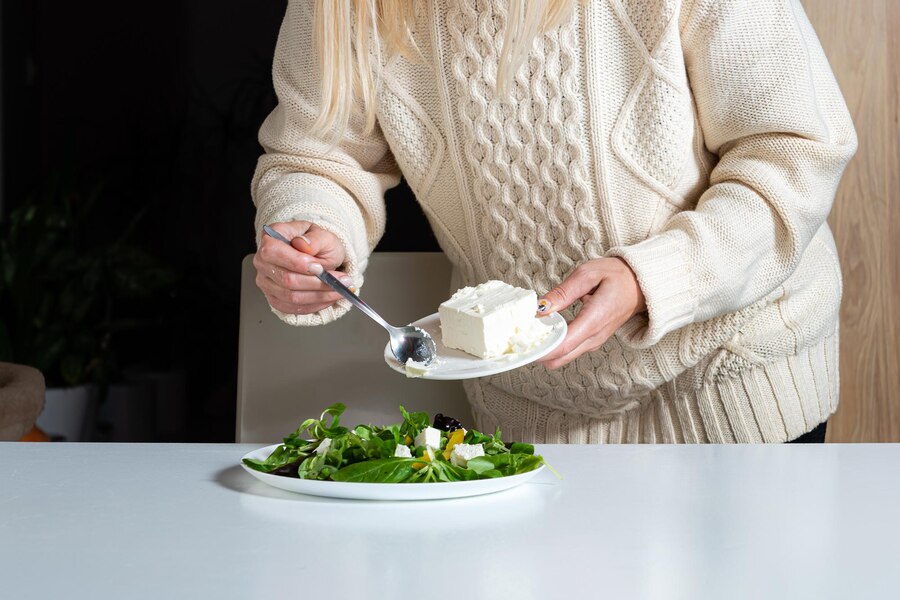In recent years, vegan cheese has surged in popularity as more people embrace plant-based diets. Whether for ethical, environmental, or health reasons, many individuals are transitioning away from traditional dairy products. However, the question remains: Is vegan cheese healthy? This article dives into the nutritional profile, benefits, and potential drawbacks of vegan cheese, providing an evidence-based answer to this question.
What Is Vegan Cheese?
Vegan cheese is a plant-based alternative to traditional cheese. It’s made without dairy and often uses ingredients such as nuts, seeds, soy, or root vegetables. Some of the common types of vegan cheese include:
- Nut-based cheeses – made from almonds, cashews, or macadamia nuts.
- Soy-based cheeses – derived from soy milk or tofu.
- Starch-based cheeses – using potato or tapioca starch.
- Coconut-based cheeses – made from coconut oil or milk.
Each type of vegan cheese has its unique taste, texture, and nutritional composition.
Nutritional Profile of Vegan Cheese
The healthiness of vegan cheese largely depends on its ingredients and manufacturing process. Below is a comparison of the average nutritional values of vegan cheese and dairy cheese per 1-ounce serving:
| Nutrient | Vegan Cheese | Dairy Cheese |
|---|---|---|
| Calories | 70-90 | 100-120 |
| Protein | 1-3g | 6-8g |
| Fat | 5-8g | 8-10g |
| Saturated Fat | 3-5g | 5-6g |
| Cholesterol | 0mg | 20-30mg |
| Sodium | 150-250mg | 150-250mg |
| Calcium | 5-15% of daily value (DV) | 15-20% of DV |
Health Benefits of Vegan Cheese
1. Lower in Cholesterol
Since vegan cheese is plant-based, it is naturally free of cholesterol. This makes it a heart-friendly option compared to dairy cheese, which can contribute to high cholesterol levels due to its saturated fat content.
2. Suitable for Lactose-Intolerant Individuals
For those who are lactose intolerant, vegan cheese offers a perfect alternative. It eliminates the digestive discomfort caused by lactose found in dairy products.
3. Rich in Healthy Fats
Many vegan cheeses, particularly nut-based varieties, contain healthy monounsaturated and polyunsaturated fats that support heart health and reduce inflammation.
4. Allergy-Friendly Options
Vegan cheese is often free from common allergens such as dairy, making it suitable for people with milk allergies or those following an allergen-free diet.
5. Ethical and Sustainable
Choosing vegan cheese aligns with ethical and environmental goals by reducing the carbon footprint and avoiding animal exploitation.
Potential Drawbacks of Vegan Cheese
1. Lower Protein Content
Compared to dairy cheese, most vegan cheeses are lower in protein. Protein is essential for muscle repair, immune function, and overall health. Individuals relying on vegan cheese should seek other protein sources to meet their daily needs.
2. Highly Processed Varieties
Some vegan cheeses are heavily processed and may contain additives such as emulsifiers, preservatives, and artificial flavors. These can detract from the overall healthiness of the product.
3. Sodium Levels
Like dairy cheese, many vegan cheese products are high in sodium, which can contribute to high blood pressure if consumed in excess.
4. Nutrient Gaps
Vegan cheese may lack some nutrients found in dairy cheese, such as vitamin B12 and calcium. However, some brands fortify their products with these nutrients.
Tips for Choosing Healthy Vegan Cheese
- Read the Ingredient List Look for products with simple, natural ingredients. Avoid those with a long list of artificial additives.
- Check for Fortification Choose vegan cheese fortified with essential nutrients such as calcium, vitamin D, and vitamin B12 to meet your dietary needs.
- Limit Processed Options Whenever possible, opt for minimally processed vegan cheese or make your own at home using whole ingredients like nuts and seeds.
- Balance Your Diet Don’t rely solely on vegan cheese for nutrients. Incorporate a variety of plant-based foods to ensure a balanced diet.
How Does Vegan Cheese Compare to Dairy Cheese?
Here’s an insightful breakdown of the key differences:
- Nutritional Value: Dairy cheese often provides more protein and calcium, while vegan cheese is cholesterol-free and may be lower in saturated fat.
- Processing: Many vegan cheeses are more processed than dairy cheese. However, some dairy cheeses, such as pre-shredded varieties, also contain additives.
- Taste and Texture: Vegan cheese has improved significantly in taste and texture, but some varieties may still lack the richness of traditional dairy cheese.
- Allergens: Vegan cheese is free from lactose and milk proteins, making it a safer choice for those with dairy allergies.
Making Homemade Vegan Cheese
Creating vegan cheese at home is an excellent way to control the ingredients and ensure a healthier option. Below is a simple recipe for nut-based vegan cheese:
Ingredients:
- 1 cup of raw cashews (soaked for 4-6 hours)
- 2 tablespoons of nutritional yeast
- 2 tablespoons of lemon juice
- 1 clove of garlic
- ½ teaspoon of salt
- Water (as needed)
Instructions:
- Drain and rinse the soaked cashews.
- Add all ingredients to a blender or food processor.
- Blend until smooth, adding water as needed to achieve the desired consistency.
- Transfer to a container and refrigerate for 2-3 hours to allow the flavors to meld.
This versatile recipe can be used as a spread, dip, or base for various dishes.
Final Verdict: Is Vegan Cheese Healthy?
Is Vegan Cheese Healthy?, The answer depends on the type of vegan cheese you choose and how it fits into your overall diet. Nut-based or homemade vegan cheeses made with whole ingredients are generally healthier than highly processed store-bought varieties. However, it’s essential to consume vegan cheese in moderation and pair it with a balanced, nutrient-rich diet.
By understanding its benefits and limitations, you can make informed choices about incorporating vegan cheese into your lifestyle. For those pursuing a plant-based diet, vegan cheese can be a tasty and ethical alternative to traditional cheese without compromising on flavor or texture.
FAQs About Vegan Cheese
1. Is vegan cheese suitable for weight loss?
Yes, but it depends on the type. Some vegan cheeses are lower in calories than dairy cheese, making them suitable for weight management. However, processed vegan cheeses high in fat and sodium should be consumed in moderation.
2. Does vegan cheese melt like dairy cheese?
Some vegan cheeses are specifically designed to melt, making them suitable for pizzas, sandwiches, and other dishes. Nut-based and homemade cheeses, however, may not have the same melting properties.
3. Can vegan cheese cause allergies?
While vegan cheese eliminates dairy allergens, some varieties may contain nuts, soy, or gluten, which can trigger allergies in sensitive individuals. Always check the label if you have food allergies.
4. How long does vegan cheese last?
Store-bought vegan cheese typically lasts 5-7 days in the refrigerator after opening. Homemade vegan cheese should be consumed within 3-5 days to ensure freshness.
5. Is vegan cheese environmentally friendly?
Yes. Vegan cheese production has a significantly lower environmental impact compared to dairy cheese, requiring fewer resources and generating fewer greenhouse gas emissions.










